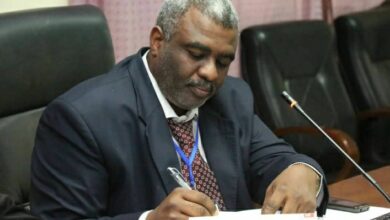
The Electoral Commission

Dr. Elshafie Khidir Saeid
The success of the Electoral Commission in its tasks depends entirely on the success and achievement of the tasks of the Constitutional Commission if we want the outcome of the elections to be a stable political system that expresses in all honesty and transparency the trends of public opinion, regardless of the winner or loser in the elections, and far from falsifying the will of voters through tribal, sectarian, religious or financial influence, and away from corrupt practices such as fraud, manipulation and buying votes. As some experts have told us, the minimum time frame for the Electoral Commission to complete its work is 24 months.
Many of us see in the concept of elections nothing but the processes of the population census, the preparation of the electoral register, the candidates’ nomination procedures, and voting…, and thus reduce the tasks of the Electoral Commission, as well as the electoral law, to this perception and understanding of the concept of elections. Of course, all these perceptions, processes, and other procedures, related to the meaning of the concept of elections, are correct, very important, and essential, and without them, elections cannot take place, but the idea of elections is much larger, broader and deeper than that. Look at our previous electoral experiences, and I mean the real experiences at the end of the previous transition periods and not the false experiences that took place under the dictatorial regimes. All of these real experiences fulfilled the perceptions and known procedures including population census, an electoral register, nomination procedures, appeals, and voting. But, despite all that, those real electoral experiences ended up with the reproduction of the crisis and the continuation of the evil cycle.
When I say that the idea of elections is bigger, broader, and deeper than registration, nomination, and voting procedures, I am referring to the political reform issue, which contains several items, including the management of diversity, the constitutional structure, the economic development project…etc., in addition to the issues of the quality of the democratic system and the quality of the electoral system. When we refer to the quality of the democratic system, we mean the different forms of the democratic practice, while democracy itself has a fixed essence and absolute universal values, represented in the bundle of rights and freedoms, determined by the country’s constitution and practiced on the ground without detracting from its content under any pretext, and giving them a social dimension linked to providing the material needs of the people and providing a livelihood for the citizen. Any program, theory, or theses that claims to be revolutionary, and says that it seeks to change society and that it seeks to achieve social justice, must be based on the necessity of preserving and consolidating all of what the masses have acquired of these basic rights and freedoms. The closer these programs and theses are to the adoption of democracy, the closer they are to providing correct solutions to the issues of development, regardless of the difficulties and degree of complexity.
Some argue that the values of democracy referred to, are the characteristic of liberalism alone, and our societies have nothing to do with them. Although this is a wrong assumption, it has an objective basis in that liberalism was the first to formulate these values and principles institutionally and directly, which is considered a great deed and a historical achievement by the bourgeois revolution as a victory for humanity after it had suffered for hundreds of years the darkness of slavery, feudalism, and priesthood rule. More details in the next article.




